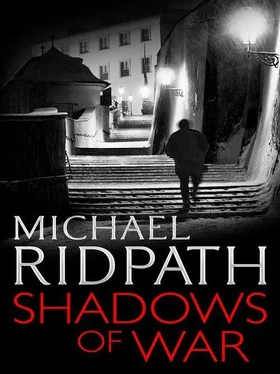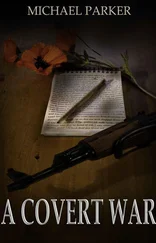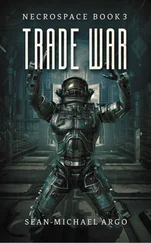And then there was the secret service. Naturally, Conrad knew next to nothing about them. In November his father had let slip that the head of the SIS had died and they were looking for a successor. Who was he? It couldn’t be McCaigue, could it?
Conrad had met four members of the SIS: Foley in Berlin, Payne Best and Stevens in Holland, and McCaigue in London. Foley was impressive. Payne Best and Stevens unimpressive. McCaigue seemed trustworthy, but could Conrad really be sure even of him?
And even if Alston had had no help, he was still dangerous. He could find himself another killer to go after Conrad. McCaigue had suggested Conrad return to his unit. Ironically, that would be the safest place to lie low. Conrad could leave it to McCaigue to wrap up Alston and his friends. But that was a tall order. Perhaps McCaigue could manage it, or perhaps the major himself would be the next victim: arrested, sidelined or even murdered. And if that happened, there would be no one to stop Alston.
Apart from Conrad. But what could he do? See his father for a start. Anneliese was right that he shouldn’t try to confront him with his treachery. But if Conrad approached him with the right degree of innocence, he might discover when Lord Oakford was leaving for France. Maybe McCaigue had already arrested him? Dreadful thought though that was, it was the best outcome to hope for.
Then he should go to see McCaigue. Tell him what had happened the night before and see if there was anything more constructive Conrad could do to help. Perhaps he should see Polly Copthorne himself, or telephone her, to find out more about the mysterious Parsons. And he should also drop in at the War Office to discuss armoured Bedford lorries, for Colonel Rydal’s sake as much as his own.
Conrad arrived at his family’s house in Kensington Square just before nine.
Williamson answered the door, with surprise and pleasure. ‘We weren’t expecting you, sir.’
‘Leave is becoming more and more unpredictable, Williamson. Is Father in?’
‘No, sir. He left for Paris this morning.’
‘Did he really?’ said Conrad. ‘What is he doing there?’
‘Government business of some kind, I believe. It all came up rather suddenly.’
‘Do you happen to know where he is staying?’
‘Presumably the Meurice, sir. If he gets a room. It’s where we usually stay. He promised to let me know.’
So Lord Oakford had left his valet behind and Williamson had missed out on a trip to Paris. Given what the newspapers were saying about the situation in France, he probably didn’t mind this time.
‘Is my mother here?’
‘No, her ladyship is at Chilton Coombe. Will you be staying?’
‘I don’t know, Williamson. But I’ll come in for now.’
Conrad thought he had done a reasonable job of registering only mild surprise in front of Williamson, but he was troubled. His father was already on his way to fetch the Duke of Windsor.
And what was Conrad going to do about that?
He went out into the garden at the back of the house. It was looking lovely; the wisteria was just popping out, as was the climbing rose on the back wall.
His father had to be stopped. And Conrad couldn’t trust anyone else to stop him.
If McCaigue could wrap up the plot in London, arresting Alston and whoever else was necessary, all well and good. Conrad couldn’t do much more about that. But he could stop his father. If he could get to Paris.
He went back into his father’s study and telephoned Thomas Cook’s. There were no seats on any commercial flights to Paris and the agent seemed to think he was a bit of a fool for thinking there might be. He would need official help, of the kind his father had no doubt had.
Who could get him a seat on an aeroplane? That day, preferably.
Van?
No.
McCaigue?
Possibly. Probably not. In fact McCaigue would be much more likely to forbid him from going to France.
Who then?
Conrad had an idea. He dialled a number in Suffolk, and asked to be put through to Colonel Rydal.
‘Rydal.’
‘Lieutenant de Lancey here.’
‘Ah, Mr de Lancey. Are you having any success?’
‘I’m making progress. But I need to get to France urgently. And I thought you might be able to help me.’
‘How could I do that?’
‘I don’t know. Send me as an advance party. Liaison officer. Or something.’
‘I will be in trouble enough for sending you to London as it is.’
‘It’s vital I get to Paris.’
‘Mr de Lancey, you told me it was vital you get to London.’
‘And it was!’ Conrad realized he was going to have to tell Rydal the truth. Or at least most of the truth. ‘Look, sir. An envoy has been sent to France to invite the Duke of Windsor to return to England and lead a new regime to make peace with Hitler. I know that envoy and I can stop him. But only if I fly to Paris today.’
‘Good God,’ said Colonel Rydal. ‘You are not exaggerating, are you?’
‘No, sir. These are desperate times.’
‘You are damn right there.’ There was silence for a few seconds. ‘I might have an idea. Give me your number and I’ll ring you back in half an hour.’
Conrad gave him the telephone number of the house in Kensington Square and waited, staring at the phone. As he sat there, his whole being focused on how to get to France. How to stop his father.
Half an hour passed. Thirty-five minutes. Then the phone rang.
‘De Lancey,’ Conrad answered.
‘This is Rydal.’ The name was familiar, the voice less so. ‘I’m with the Air Ministry. I understand you have been speaking to my brother.’
‘I have,’ said Conrad.
‘All right. Go straight to Hendon Aerodrome, taking only a light bag and your passport. When you get there ask for Squadron Leader Ebsworth and tell him who you are. He will put you on an aeroplane to Paris — there is a spare seat but it’s leaving at eleven-thirty so you will have to be quick. On no account tell anyone at all why you are going. If they ask, just say you are not at liberty to answer. That usually works.’
‘Thank you, sir.’
‘When you get to Paris, you’re on your own. And you will have to make your own way back.’
‘I understand. Thank you so much, sir.’
‘Thank my brother. He told me what you were doing, he had to, to get me to agree to help you.’
‘Of course.’
‘Good luck, de Lancey.’
It was just before ten. Conrad didn’t have much time to get to Hendon. No time to tell McCaigue, who would probably only try to stop him anyway, and certainly no time to go to the War Office. He would tell Williamson he was going back to his battalion. But he dialled Mrs Cherry’s telephone in Hampstead Garden Suburb.
The English voice at the other end was colder than usual. The German voice that replaced it a minute later was distraught. Anneliese’s mother.
‘Ach, Conrad,’ she said. ‘The police came and arrested Anneliese this morning. We don’t know why.’
Conrad felt cold. This was all too familiar. London was becoming Berlin.
There was nothing he could do for Anneliese, certainly not in the few minutes he had before he went to Hendon Aerodrome. This news just made it more important that he go to Paris. He gave Frau Rosen Major McCaigue’s telephone number, and told her to make sure Anneliese asked to speak to him. McCaigue should be able to get her out; Conrad was glad that he had introduced her to the intelligence officer the day before. With any luck she might not even spend one night behind bars.
At first Conrad assumed he knew why Anneliese had been arrested — because of her association with the Russian Tea Rooms. But then he wondered whether it had anything to do with the attempt on his own life the night before. Perhaps Alston and Constance had discovered that she was on to them.
Читать дальше












